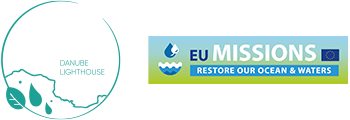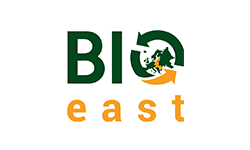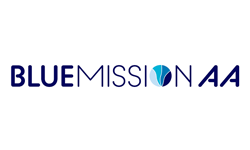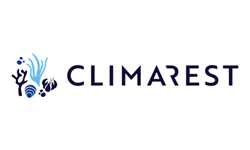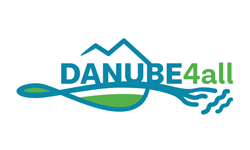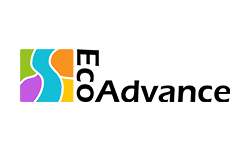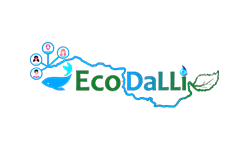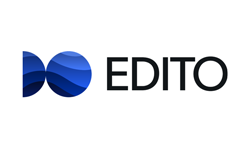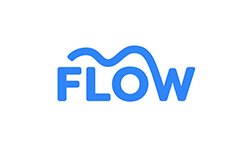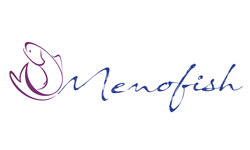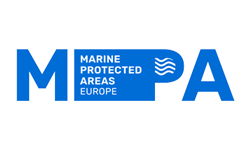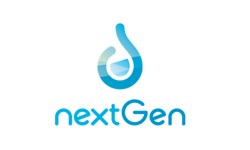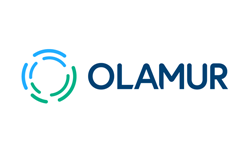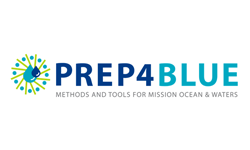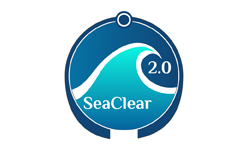Related Initiatives
Fresh water is a vital element influencing the economies and social structure, of the Central and Eastern European countries; The BIOEAST Initiative of Central and Eastern European countries defined fresh water as an important thematic area and the Thematic Working Group Fresh Water Based Bioeconomy was initiated by the Ministry of Agriculture of the Czech Republic in 2020. This Thematic Working Group is working on 11 countries priorities concerning the fresh water-based bioeconomy, and specifically on research and innovation agendas and from the very beginning members of the TWG Fresh Water BBE has been discussing priorities concerning the fresh water-based bioeconomy in the BIOEAST macro-region.
www.bio-hub.cz/en
BLUEMISSIONAA is building a Coordination Hub to Support the Mission Implementation in the Atlantic and Arctic Basin. It focuses on preserving and restoring marine and coastal ecosystems and biodiversity for increased climate resilience.
CLIMAREST is an EU-funded research project consisting of 18 partners from along the length of the European coastline. The project belongs to the EU Mission Restore our Ocean and Waters, and is a member of the Lighthouse for the Arctic and Atlantic Basin.
DANUBE4all aims to restore freshwater ecosystems in the Danube River Basin through the development of a comprehensive, scientifically-based and practically-orientated Restoration Action Plan (RAPDRB). The project seeks to address the lack of knowledge, awareness, and participation of local people and business actors in the implementation of freshwater ecosystem restoration. In this pursuit, DANUBE4all is an unprecedented co-creation process between scientists, researchers, SMEs, investors, public bodies, policymakers, and local communities.
The project takes a multi-sectoral approach to addressing the diverse set of environmental challenges facing the Danube River Basin. These include extensive loss of river connectivity and associated ecosystem degradation, biodiversity losses, and a need for new approaches to nature-based solutions that can help revitalize the way we interact with the river.
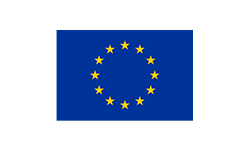
DAnube WETlands REStoration (DaWetRest) Lighthouse is designed to develop and demonstrate (pilot) concrete solutions applied on the Danube basin to address the challenges faced by its inland and coastal wetlands ecosystems’, namely on (i) biodiversity, (ii) water quality and availability, (iii) climate resilience and/or neutrality and (iv) socio-economic benefits for the local communities. These transformative and innovative solutions will be validated by local communities and main Regional and European-wide stakeholders. DaWetRest has the role to prepare and plan the replication, deployment and scaling up of the validated innovative solutions for the next mission’s phase.
The ultimate goal of the EcoAdvance project is to encourage more widespread and successful freshwater ecosystem restoration projects across Europe. EcoAdvance aims to achieve this by identifying factors most likely to drive and lead towards more successful projects, and by showcasing relevant models and good practice examples country by country across Europe.
To identify key drivers for success, DALIA people and pilots can help a lot by the experiences and needs related to the freshwater restoration challenge. Sharing and learning from their experiences will help others to succeed and facilitate the clustering under the DALIA collaboration.
ecoadvance.eu
EcoDaLLi (ECOsystem-based governance with DAnube lighthouse Living Lab for sustainable Innovation processes) is the Coordination and Support Action (CSA) of the Danube Lighthouse within the EU Mission Ocean & Waters. As such, it aims to centralizes Danube governance structures and innovative solutions for the ecological restoration, protection and preservation of the Danube basin and its delta. This will be implemented by fostering a stronger innovation ecosystem within a well-connected Practices Living Lab system, supported by a digital portal and fully linked to the Mission Implementation Platform and the Mission Charter.
EDITO-Model Lab is a new Horizon Europe project, funded under the EU Mission Restore our Ocean and Waters by 2030, supporting the construction of the European Digital Twin of the Ocean (EU DTO). For the next 3 years, 14 partners across Europe will be working to develop the next generation of ocean numerical models, combining artificial intelligence and high-performance computing, to be integrated into the EU public infrastructure (EDITO-Infra), providing access to focus applications that refer to the Mission Lighthouses and simulations of different what-if scenarios.
Future Lives with Oceans and Waters (FLOW), funded by the European Union under the Horizon Europe Research and Innovation Programme, is a two-year collaborative project coordinated by Radboud University, from the Netherlands. Other three partners are UiT The Arctic University of Norway, from Norway, Fraunhofer Institute for Systems and Innovation Research ISI, from Germany, and Volonteurope, from Belgium, which is the civil society partner in this Horizon project.
FLOW aims to increase the understanding of the connection that the young generation has with oceans, seas and waters. Moreover, by combining transdisciplinary methods – horizon scanning, ethnographic fieldwork, and experiential futures workshop – in an innovative way, FLOW engages youth in intergenerational just and transdisciplinary research. Bringing together young people from seven different regions across Europe will provide the opportunity to see how young people connect themselves to oceans and waters.
The Memofish project aims to battle harmful usage of the natural resources along the Danube by intergrading tourist products with raising awareness about local fisherman communities’ legacy. Enhancing, this way, economic profit, eco-system protection, and preservation actions while protecting the river and its fishing cultural heritage.
This project takes an inter-disciplinary approach by using holistic measures of biodiversity to encompass variation within and between species and of ecosystems (including many environmental variables), as well as carbon cycle dynamics and climate change scenarios. The team thus includes experts in marine biology, taxonomy, ecology, oceanography, biogeochemistry, and biogeography, MPA network design, benthic habitat mapping, carbon dynamics, and species distribution and climate modelling.
NextGen (Towards a next generation of water systems and services for the circular economy) provided innovative technological, business and governance solutions for water in the circular economy, namely, to reduce consumption of water, energy, and materials and to prevent pollution of water ecosystems and the environment--including through reduction of greenhouse gas emissions.
Funded under The EU HORIZON Framework Programme, OLAMUR will contribute to the EU Mission Ocean by bringing together multi-use low-trophic aquaculture (MU-LTA) related key sectors, to demonstrate sustainable commercial solutions for both the North and the Baltic Sea. OLAMUR will establish three pilot demonstration sites where seaweed and blue mussels will be grown within windfarms or in the vicinity of a trout farm.
PREP4BLUE overarching objective is to facilitate a successful first phase (2022-2025) of the Mission, by developing the co-creation and co-implementation R&I modalities required to achieve the Mission objectives and preparing the ground for inspiring and engaging citizens and stakeholders. The project is designed to deliver a series of tools, guidelines, methodologies and recommendations tested through pilots, which will interlink, leverage and optimise activities among the projects funded under the Mission.
SeaClear2.0 supports the achievement of the EU Mission “Restore our Oceans and Waters” by preventing and eliminating seabed and floating marine pollution. This is achieved through a combination of technological innovation, stakeholder engagement, citizen activation, and contribution to policy-making.
SeaClear2.0 aims to prevent and reduce marine litter pollution, particularly plastics and microplastics, in the Mediterranean through (i) Community activation, (ii) Scaling up and demonstrating an innovative solution with teams of autonomous, intelligent robots for effective monitoring and collection of marine seafloor and surface litter, (iii) Providing solutions for valorization of the collected litter, (iv) Adding novel dimensions in policy making, and (v) Accelerating the uptake of our solution by demonstrating its scalability and replicability to the Mediterranean basin and beyond.
- Plastic Pirates - Go Europe!
- 4BIZ – Boosting the Blue Economy in the Black Sea Region
- nextgenwater.eu
- Eupolis Project
- Biopolus projects
- GRENDEL
- DANTE
- DIONYSUS
- Smarter Amazon of Europe
- MEMOFISH
- Proiect SZANAZUG-TULCA
- ApeleRomaneCrisuri
- transformar.eu
- danurb.eu
- STARGATE - “Resilient Farming by Adaptive Microclimate Management”. Local crop risk analysis and prediction methods developed in STARGATE are made available to DALIA pilot projects and demonstrators.
- GEM ”Global Earth Monitor” - low cost earth observation (EO) data- exploitation to enhance the exploitation of Copernicus data. Results from the GEM project can be leveraged in demonstrators
- Danube Sediment Management - Restoration of the Sediment Balance in the Danube River
- OPTAIN project - “Optimal strategies to retain and re-use water and nutrients”
- General Directorate of Water Management (OVF) - Hungarian sub-governmental directing institute for water management
- peopleandwater.international
- Insula Magna–Complex Water Management and Sustainable Development Program
- Interreg Thaya
- TACR Dyje
- HAMR
- petkupa
- Tid(y)Up
- 5 COUNTRIES 1 RIVER - 2020-1-HU01-KA201-078843
- Tiszai PET kupa
- An Integrated System for the Complex Environmental Research and Monitoring in the Danube River Area, REXDAN, Contract no. 309 / 10.07.2020, SMIS Code 2014+: 127065
- Integrated research and sustainable solutions for protection and restoration of ecosystems in the lower Danube basin – Black Sea coastal area, PNRR-III-C9-2022-I5
- IDES - Improving water quality in the Danube river and its tributaries by integrative floodplain management based on Ecosystem Services
- Together We Stand
- Danube Foodplain
...
...
